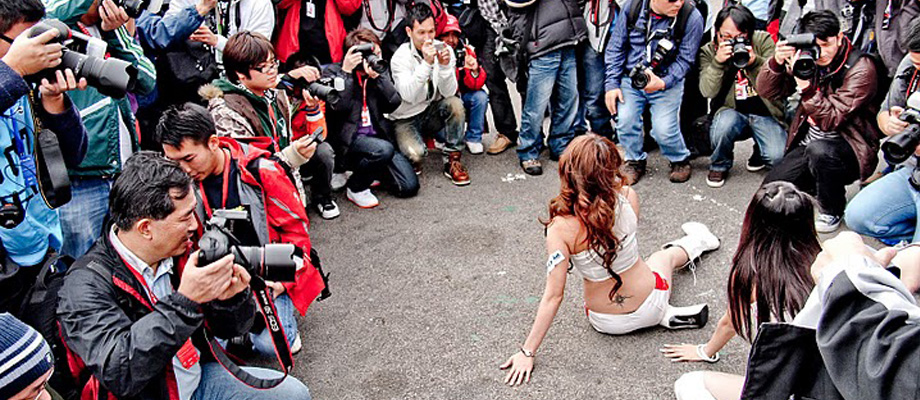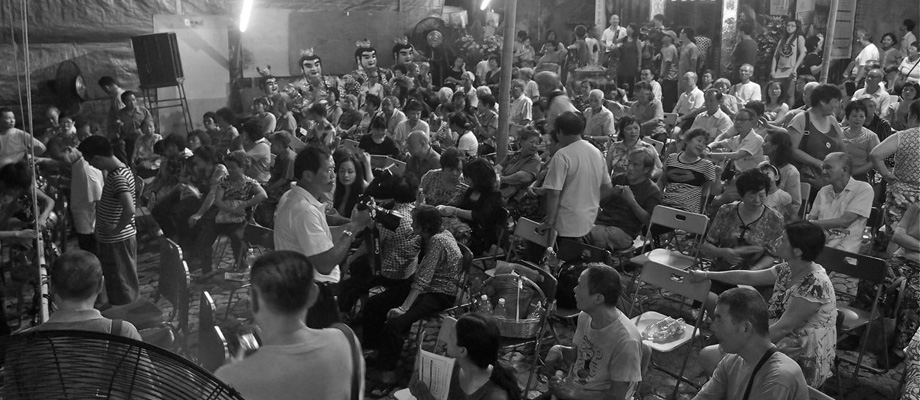This is an image of a rooftop ladder where a photographer claims he shot a silhouette of a plane though while waiting for a plane to fly over.
It won a Nikon prize in Singapore.
Goes to show that you only need an ounce of photoshop skills to win something online.
Using photoshop, the image was detected to be fake. But Nikon refuse to admit its error. This sparked a whole slew of fake pictures that became a meme.
Including this one of a Tie Fighter.
So what do we take from this? Obviously a picture is worth a thousand words but with Photoshop, it's worth probably far more.
I recently had a conversation with a camera retailer who joked that these days, you don't have to be a top notch photographer to get jobs...as long as your photoshop skills are excellent that's what clients want.
Looking back, what he said is true. I mean, which of you out there who shoot weddings and commercial photos would refuse to use Photoshop to remove any imperfections?
Running a Photo Contest is a fatal affair for a Brand
During my time with Sony, I was given a chance to run a photo contest and we did. It was a difficult decision and we had to take Photoshop into account.
You had to send in copies of your originals which were short listed and later, asked for the RAW files. The contest itself was free to enter. We only wanted pictures that told a story and that was it. There was a lot of work involved and many people were engaged for a rather simple project like this.
All because we wasted to be sure that whoever won the prize deserved it.
When brands like Nikon give out prizes to undeserving photographers, it gives the impression that Nikon values Photoshopped images more than real ones and this is VERY bad for the brand.
Nikon was in no doubt not in a big hurry to remove the image from its Facebook page or for that matter cancel the award. They were lost for words. Sort of like shooting yourself in the foot and then putting your foot in your mouth.
This is why having a photo editor run a contest is crucial. And these are not your average Tom, Dick or Harry. They are experts in detecting fraud and in another time, they would be known as fraud detectors. Why do Brands have to do this? Because Photoshop exist.
Photoshopping is not illegal for Stock Image Sales
Many a time, Stock Image Banks or Libraries do not make it clear on the subject of image manipulation because they encourage it.
Stock images sell because it is a cleaned imaged, that means an image that has been created or staged to the point that it appeals to buyers.
If you have brands in the background or foreground, it is up to you to remove them. Once it is done, it because more marketable as the buyer doesn't need a copy of Photoshop to clean it up for their use.
A less than perfect photo isn't enough. It has to be perfect, not for viewing but for commercial use.
Once photographers get into the habit of this, then firing up Photoshop becomes a routine affair for processing photos rather than use Image Editors like Lightroom.
Photography is about the capture of Images
This is where I have problems with the above understanding. You become less of a photographer and more of a photo manipulator.
You then have to ask yourself where you stand.
I don't have a copy of Photoshop sitting on my computer for the last five years, and have allowed my Photoshop skills to depreciate with each new version of Photoshop CC. Do I miss it?
Not one bit.
I find that I enjoy my photography more either using a mobile device or on an analog camera. I don't even use my digital cameras to shoot anymore.
The purity of the experience is in the art of making photos with a camera and not with a computer. I don't think of capturing less than perfect photos because I know I can fire up Photoshop to change things around in an image.
This is a very important lesson if you want to learn the art of Photography in a digital age.
You have to ask yourself if you are doing it for profit or for your own sense of enjoyment before embarking on it and if you say the former, that is to sell your works, then you probably need to ante up on your Photoshop skills more than your Photography skills.
Photos can also be sold as framed artworks so this works to your advantage if that is your goal.
The the purist who just wants to enjoy Photography, my advice is for you to take up a film camera before you shoot with a digital one. The experience and skills you pick up from this contributes exponentially to your skills later and you won't regret a moment of it.































.JPG)

